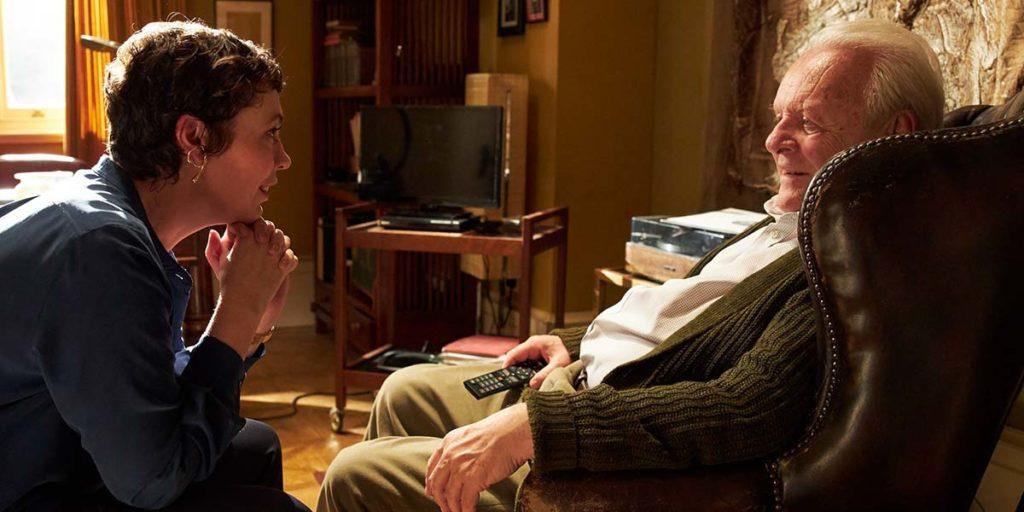The Father

Image courtesy TIFF.
“You can’t go on behaving like this,” scolds Anne (Olivia Colman).
“It’s my flat isn’t it!” her father, Anthony (Hopkins), replies, incredulous, “I have no idea who she is, this woman.”
What we see and hear paints a picture of an aging, senile patriarch. He’s going on about how his caregiver must have stolen his watch. I’ve had this exact conversation with my mother. Anne asks him if he left it under the bath, where he keeps his valuables. This too, is an important detail. The nature of Anthony’s circumstances unfold. Naturally we, conditioned to films that turn on plot developments, tend toward piecing together the fragments of Anthony’s experiences to “solve” a mystery. But Anthony is his own unreliable narrator, so there isn’t a super-narrative to construct from the stories he tells himself. That is the narrative, and consciousness is the mystery.
In March, my mother succumbed to cancer at the age of 78. In the couple of months before, the three of us, her children, watched helplessly as her mental faculties declined rapidly. Eventually we got on with our lives, as people do. Watching THE FATHER is like rewinding back to January and replaying the tape. But when we live with someone in decline, we’re acutely aware of their every tic, gesture, repeated thought. A continuum of events is a luxury we take for granted. The movie is told entirely from Anthony’s perspective.
I read a comment on a social media forum in which someone was trying to arrive at a reasonable analogy for the data storage capacity of the human mind. We most commonly compare it to a computer, the CPU accessing the hard drives as though our brain is a magnetic storage device recording everything we experience. But the analogy is a poor one, since even a single neuron is orders of magnitude more complex than a computer. I prefer a less technical analogy: A court stenographer “chords” words by pressing several keys at the same time—different combinations have different meanings. The mind records events, memories, and learning, and for most of our lives it reconstructs our memories from shorthand remarkably well. As we age, memories fade. They start to feel distant, as if you’re remembering someone else’s childhood. And then, the brain loses its ability to put the fragments back together correctly. Everything becomes a jumble.
Hopkins delivers a soul-shattering performance—possibly the best of his career—a wrenching portrait of dichotomous emotions and mental decline. How horrifying it must feel that everything changes around you without explanation—leaving you adrift. One particularly heart-rending scene depicts elderly abuse. We’re not sure if the moment is real, or remembered. We’re just as relieved for ourselves as we are for Mr. Hopkins when Anne returns his watch. An engineer by trade, the regulated ticking of his timepiece remains the only constant in his life.
Writer/direector Florian Zeller, who’d adapted THE FATHER from his stage play, doesn’t rely on any visual tricks to depict Anthony’s decay. It’s all achieved through dialogues, exactly as we’d experience it. One minute you’re having a normal conversation, and then suddenly an outburst or an abrupt change in the story details. At first you wonder if you’d been inattentive, missing a sentence or a paragraph here and there. Wrapped up in our own lives, we don’t immediately spot these aberrations. And by the time we do, we feel guilty that we weren’t paying attention sooner.
“Who exactly am I?” asks Anthony, “I feel as if I’m losing all my leaves.”
And like leaves in the fall, we fade—our memories, our being, ourselves no more.